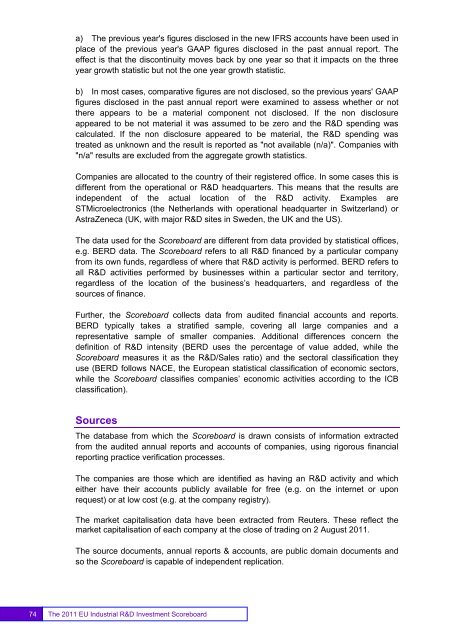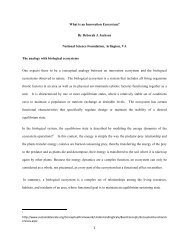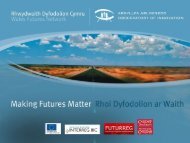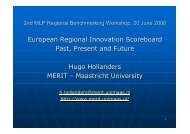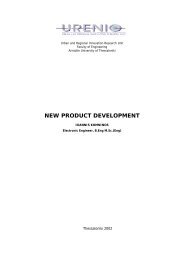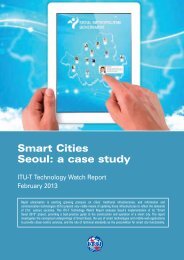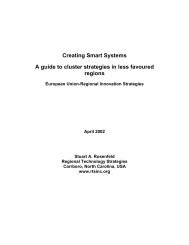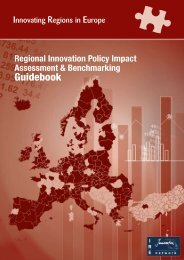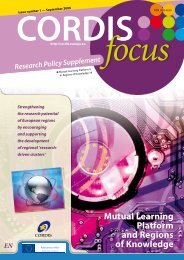EU Industrial R&D Investment Scoreboards 2011
EU Industrial R&D Investment Scoreboards 2011
EU Industrial R&D Investment Scoreboards 2011
Create successful ePaper yourself
Turn your PDF publications into a flip-book with our unique Google optimized e-Paper software.
a) The previous year's figures disclosed in the new IFRS accounts have been used inplace of the previous year's GAAP figures disclosed in the past annual report. Theeffect is that the discontinuity moves back by one year so that it impacts on the threeyear growth statistic but not the one year growth statistic.b) In most cases, comparative figures are not disclosed, so the previous years' GAAPfigures disclosed in the past annual report were examined to assess whether or notthere appears to be a material component not disclosed. If the non disclosureappeared to be not material it was assumed to be zero and the R&D spending wascalculated. If the non disclosure appeared to be material, the R&D spending wastreated as unknown and the result is reported as "not available (n/a)". Companies with"n/a" results are excluded from the aggregate growth statistics.Companies are allocated to the country of their registered office. In some cases this isdifferent from the operational or R&D headquarters. This means that the results areindependent of the actual location of the R&D activity. Examples areSTMicroelectronics (the Netherlands with operational headquarter in Switzerland) orAstraZeneca (UK, with major R&D sites in Sweden, the UK and the US).The data used for the Scoreboard are different from data provided by statistical offices,e.g. BERD data. The Scoreboard refers to all R&D financed by a particular companyfrom its own funds, regardless of where that R&D activity is performed. BERD refers toall R&D activities performed by businesses within a particular sector and territory,regardless of the location of the business’s headquarters, and regardless of thesources of finance.Further, the Scoreboard collects data from audited financial accounts and reports.BERD typically takes a stratified sample, covering all large companies and arepresentative sample of smaller companies. Additional differences concern thedefinition of R&D intensity (BERD uses the percentage of value added, while theScoreboard measures it as the R&D/Sales ratio) and the sectoral classification theyuse (BERD follows NACE, the European statistical classification of economic sectors,while the Scoreboard classifies companies’ economic activities according to the ICBclassification).SourcesThe database from which the Scoreboard is drawn consists of information extractedfrom the audited annual reports and accounts of companies, using rigorous financialreporting practice verification processes.The companies are those which are identified as having an R&D activity and whicheither have their accounts publicly available for free (e.g. on the internet or uponrequest) or at low cost (e.g. at the company registry).The market capitalisation data have been extracted from Reuters. These reflect themarket capitalisation of each company at the close of trading on 2 August <strong>2011</strong>.The source documents, annual reports & accounts, are public domain documents andso the Scoreboard is capable of independent replication.74The <strong>2011</strong> <strong>EU</strong> <strong>Industrial</strong> R&D <strong>Investment</strong> Scoreboard


